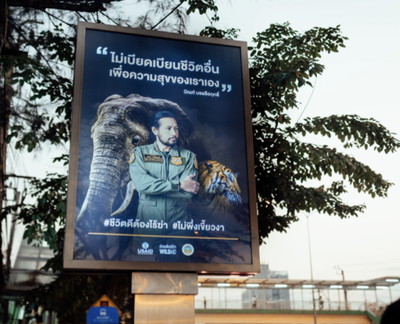Survey results show USAID campaigns in Thailand reduce consumers’ intention to buy illegal wildlife products by more than 40%
On December 15, USAID Wildlife Asia presented results from the July 2020 Thailand Rapid Monitoring Survey to the Demand Reduction Steering Group of UNDP-GEF TRAFFIC. The survey assessed the recall and impact of the four demand reduction campaigns implemented by USAID Wildlife Asia from November 2019 to June 2020. The survey showed that those who stated a future intention to buy ivory products decreased from 79% to 37%, and those with future intention to buy tiger products decreased from 75% to 31%. The results also revealed that 88% of the respondents recalled hearing or seeing at least one message from any of the campaigns, and 63% recalled seeing or hearing at least one message more than once. Comparing similar data from USAID Wildlife Asia’s 2018 Consumer Survey, these four campaigns in Thailand greatly improved the desired attitudes, perceptions of social unacceptability, and intention to not buy ivory and tiger products among respondents who were exposed to at least one of the four campaigns.
So what? SBCC campaigns have proven to be effective in reducing consumers’ intention to buy wildlife products. Reducing the desire to buy or use wildlife products among current and potential consumers is a major step that will deter future purchases and help protect endangered species.


